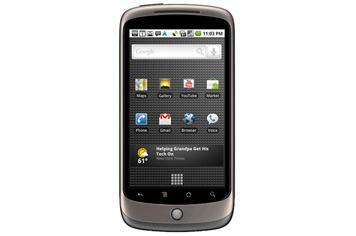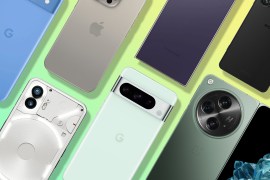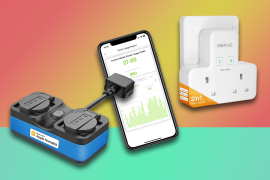5 things you need to know about the Google Nexus One
We’ve got a box here at Stuff Towers. Every time someone says the words “iPhone killer”, in goes a quid. It’s very full. But at risk of completely cle

We’ve got a box here at Stuff Towers. Every time someone says the words “iPhone killer”, in goes a quid. It’s very full. But at risk of completely cleaning out our bank accounts, here are five things to know about Google’s incoming… no, we can’t do it. Just read the list.
1. It costs around £400, SIM-free
If you can’t wait for UK service-providers to come up with contracts, you can get a Nexus One directly from Google’s website. It costs $529 (about £325), plus about £80 in taxes and import duty, and doesn’t tie you to any particular provider – Google says the One will work “with most major GSM mobile providers worldwide”. Don’t want to risk it? Vodafone are gearing up to supply a subsidised version to users in Blightly; expect it to cost around the same as an iPhone.
2. It runs Android v2.1
The latest version of Google’s operating system is slick, pretty and powerful. You get moving wallpapers, a cool cube-shaped application grid and five homescreens (up from three); Flash support is imminent; and every text-entry box can be filled via speech-to-text tech. And, being a Google phone, its Gmail support is top-notch. Surely that’s it? Is it heck. Free satnav courtesy of Google Maps Navigation is in the offing too – but we’re still waiting for it to be launched the UK. That’s not to say a quick Google search wouldn’t show you a quick workaround, of course…
3. It’s fast. Very fast
OK, so we don’t usually get all giddy and hair-twirly about CPUs, but the Nexus One’s 1GHz Snapdragon processor is a bit special. Leaving aside the fact that 1GHz chips were unheard of in even desktop PCs ten years ago, this processor endows the Nexus One with 720p video playback, and gives the handset enough oompf to run multiple applications at once. It makes the interface smooth and quick to navigate, too.
4. The camera trumps the iPhone’s
The One’s 5MP autofocus camera gives you two more megapixels to play with than Apple’s 3MP offering, plus it has an LED flash. It also captures video at 720×480 resolution at at least 20 frames per second. Geotagging is a given, courtesy of the One’s A-GPS capabilities.
5. There’s no multi-touch (not in the US, anyway)
Patent restrictions mean the US version won’t have multi-touch capabilities, but these conditions don’t extend to Europe – which means that, while it’s not a given, the UK version of the Nexus One when launched with Vodafone could potentially do iPhone-style pinches and twirls. If it does, Apple could be starting to sweat a bit…
And here’s a bonus one for you to mull over:
6. It’s not really Google’s first phone The Nexus One’s arrival has been surrounded by hype, halos and the fanfares of a thousand heavenly trumpets, but it’s not the first phone Google’s produced. The T-Mobile G1 appeared on this very site back in November 2008. It was revelatory at the time – a real alternative to the iPhone – but its early Android implementation looks stone-aged next to the One’s, and its QWERTY, while fair, goes against the minimalist touchscreen grain. Our G1 verdict? Four stars. Could do better. We’ll see if Google managed it when we get a One in. Keep your eyes on Stuff.tv for a full test.



